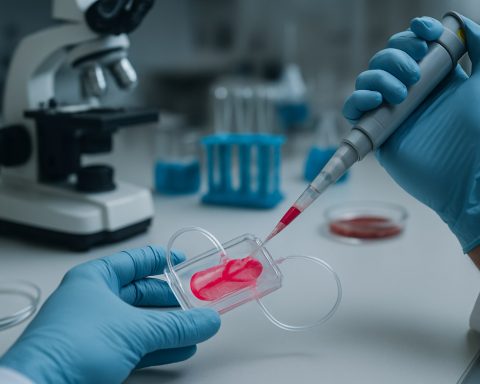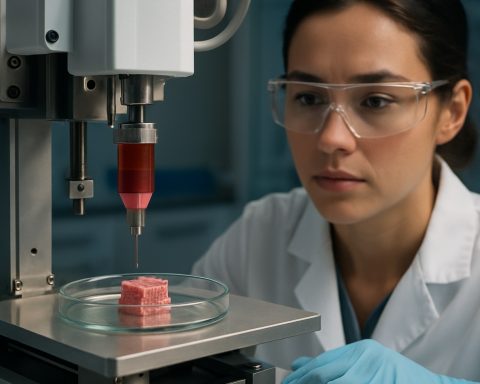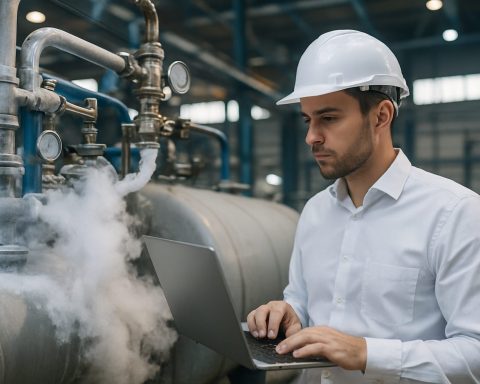- Nissan aims to launch all-solid-state batteries (ASSB) by March 2029, potentially transforming electric vehicles (EVs) and hybrid technologies.
- The new battery design features a lithium-metal anode and sulfur electrolyte, offering higher energy density and efficiency than conventional lithium-ion options.
- Potential cathode materials include nickel-manganese-cobalt or sulfur-manganese, reducing reliance on expensive, rare materials like cobalt.
- The battery promises a density of up to 1,000 watt-hours per liter and rapid charging capabilities—charging up to 65% in five minutes.
- Durability and heat resistance are key features, critical for hybrid applications, enhancing efficiency in larger SUVs.
- Nissan’s aggressive timeline differentiates it from competitors, underscoring their dedication to revolutionizing battery technology by 2029.
- Success could reshape the automotive industry, offering faster charging, increased travel range, and reduced costs.
A technological revolution is quietly brewing in the automotive world, promising to reshape the landscape of electric mobility. At the forefront is Nissan, ambitiously aiming to revolutionize batteries with the launch of its all-solid-state battery (ASSB) by March 2029. This forthcoming innovation promises not only to supercharge electric vehicles (EVs) and hybrids but also to redefine efficiency, cost, and safety standards.
In the bustling assembly lines of Japan, an engineering climax is underway. With a steadfast focus, Nissan’s engineers are crafting a battery prototype that could set new industry benchmarks. Built around a lithium-metal anode and a sulfur electrolyte, this innovation ventures beyond conventional lithium-ion technology, which has long dominated the EV scene. The potential use of nickel-manganese-cobalt or even sulfur-manganese cathodes could liberate manufacturers from dependence on rare, costly cobalt, driving down production expenses and environmental impact.
Visualize a battery with a density of up to 1,000 watt-hours per liter, a quantum leap from today’s standard. This is the horizon Nissan pursues. Add to this the battery’s promise of charging up to 65% in a mere five minutes, and it’s clear why this technological shift is groundbreaking. Envision the future practicality: owners of both sleek EVs and rugged hybrids powering up faster than it takes to enjoy a cup of coffee.
Durability and heat resistance are crucial facets of Nissan’s battery design. The promise of enduring temperatures of 212 degrees Fahrenheit speaks to its robust construction. Such attributes are vital for hybrid applications, where battery resilience under various conditions is critical for efficiency and longevity, especially in larger SUVs.
As anticipation swells, the broader industry watches with bated breath. While competitors like Mercedes and Factorial explore similar paths, Nissan’s aggressive timeline sets it apart. The world is thrust into an electrifying battery race—one where innovation speeds towards accessibility, and potential transforms into reality.
The road ahead isn’t without challenges, but Nissan’s determination is palpable. If successful, this leap will not merely join an existing race but may define its ultimate direction, marking an inflection point in how we power our journeys. As 2029 approaches, the spotlight is on Nissan to deliver a new era of mobility—one that charges faster, travels further, and costs less. In this rousing new chapter, it seems the future is not just near; it is accelerating closer than ever before.
Nissan’s Game-Changing All-Solid-State Battery: A New Chapter for Electric Vehicles
Innovative Features of Nissan’s All-Solid-State Battery
Nissan’s upcoming all-solid-state battery (ASSB) represents a significant technological advancement in the electric vehicle (EV) industry. With a targeted launch by March 2029, this innovation promises substantial improvements in efficiency, cost, and safety standards.
1. Revolutionary Composition: Moving beyond the conventional lithium-ion technology, Nissan’s battery uses a lithium-metal anode and a sulfur electrolyte. By potentially incorporating nickel-manganese-cobalt or sulfur-manganese cathodes, Nissan aims to minimize reliance on rare, expensive materials like cobalt. This shift could reduce both production costs and environmental impact.
2. Energy Density & Charging Time: The new ASSB is projected to achieve an energy density of up to 1,000 watt-hours per liter, significantly higher than current standards. Additionally, it promises a rapid charging time, capable of reaching 65% capacity in just five minutes. This could revolutionize practical EV usage, allowing quick recharges akin to a brief coffee break.
3. Durability & Heat Resistance: The battery’s ability to withstand temperatures up to 212 degrees Fahrenheit ensures robust performance. These characteristics are crucial for hybrid vehicles that require consistent battery resilience in various conditions, particularly in larger SUVs.
Industry Trends and Challenges
Nissan’s aggressive timeline sets it apart from competitors like Mercedes and Factorial, who are also exploring solid-state battery technologies. The race to innovate is not devoid of challenges. Manufacturing complexities and potential cost overruns in developing such advanced technology are key hurdles.
– Market Forecasts: By 2030, the solid-state battery market is expected to grow exponentially, driven by demand for safer, higher-performing batteries in EVs and consumer electronics.
– Security & Sustainability: Solid-state batteries are inherently safer, reducing risks of leakage and fires associated with liquid electrolytes. Their reduced reliance on cobalt aligns with a broader industry move towards sustainable materials.
Practical Implications and Insights
Before the official release of Nissan’s ASSB, consumers and industry stakeholders should consider the following:
1. Real-World Use Cases: Faster charging and greater energy density make these batteries ideal for a range of vehicles, from compact EVs to high-demand hybrid SUVs.
2. Performance Comparisons: Compared to lithium-ion batteries, solid-state variants offer significantly improved safety and longevity, lowering the total cost of ownership.
3. Emerging Controversies: The high initial development costs and potential supply chain challenges for raw materials like lithium and nickel might affect initial market prices.
Pros and Cons Overview
Pros:
– Higher energy density and faster charging times.
– Improved safety and thermal stability.
– Reduced environmental impact due to less reliance on rare materials.
Cons:
– Potentially higher upfront costs.
– Manufacturing and scalability challenges.
Conclusion and Actionable Recommendations
As the launch of Nissan’s ASSB approaches, stakeholders should stay informed about advancements in battery technology. Manufacturers, in particular, should consider diversifying material sources to mitigate risk. Consumers interested in EVs should weigh the benefits of solid-state batteries in terms of long-term savings and environmental impact.
Quick tips for prospective EV buyers include staying updated with the latest EV models featuring new battery technology and considering government incentives for environmentally friendly vehicle purchases.
For more insights on advancements in the automotive industry, visit [Nissan’s website](https://www.nissan-global.com).









